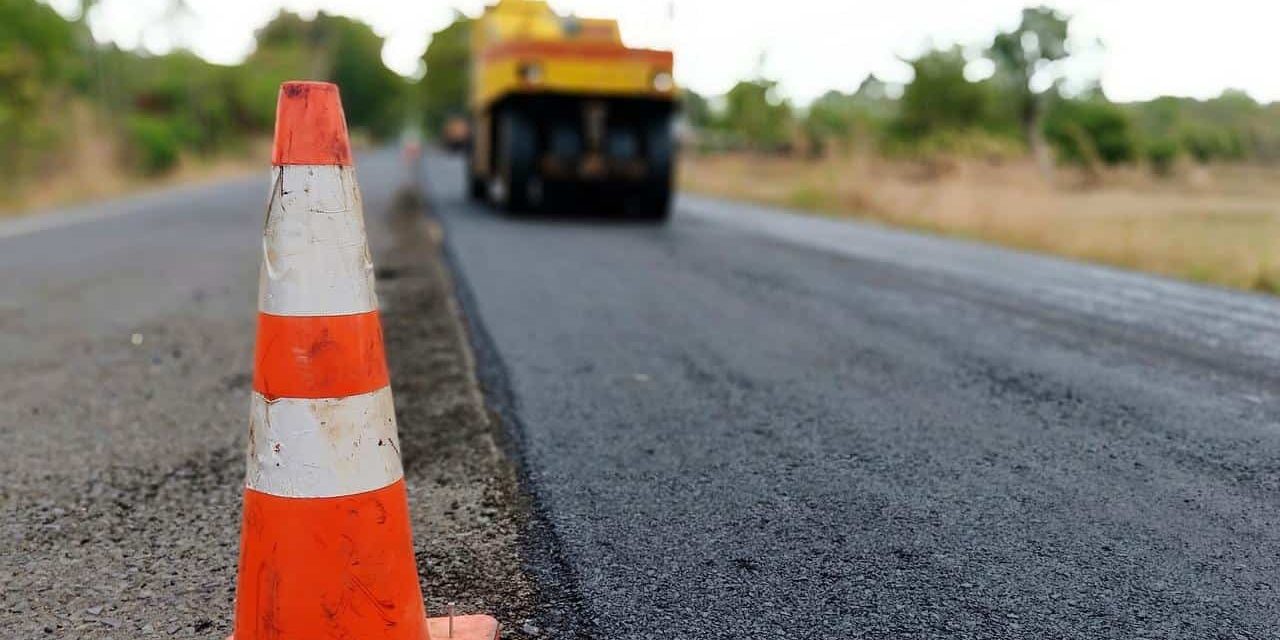Newtonville road project in Clarington “not leachate toxic” – consultant’s report
Published November 15, 2022 at 5:25 pm

A third-party testing of toxic materials discovered by a resident during the re-construction of Newtonville Road in Clarington has concluded that the amount found was below the laboratory detection limit and work on the project will resume “in the near future.”
The pilot project involved laying down a two-inch thick foundation of recycled materials such as crushed glass before the final paving is done but was put on hold after a citizen discovered that some of the recycled material used in the project actually contained toxic materials such as decaying batteries, cell phone parts and syringes.
Newtonville resident Andrew McVey, who made the discovery in the fall, said the material was “toxic waste” and “stuff that should be in a proper landfill” at a delegation to Clarington Council in September. “I really, really don’t want another Walkerton here.”
Other materials found in the mix, McVey said, included razor blades, antennae parts, metal hooks, dental tools, keys and pennies.
The project is the responsibility of Durham Region and the Region promised to put off paving the road until an investigation into the composition of the material and the sorting process used is complete.

Some of the materials found by a resident in September
The Region then retained a third-party environmental engineering consultant, Malroz Engineering Inc., to take samples of the recycled materials used in the road base for the Newtonville project to ensure they meet the Region’s “expectations” as blue box materials. The Ministry of the Environment was also involved in the investigation.
Malroz staff dug 41 test pits, each about 50 metres apart, and took eight samples of the road base to be taken for laboratory analysis. There were objects found that shouldn’t have been there, such as USB storage devices, vaporizer battery cartridges, chicken bones, wood debris, metal objectives, sunflower seeds, rubber parts, paper, metal springs and some organic decaying material.
But the samples passed the detection limit test and Malroz said any leachate found also met the required criteria.
“On the basis of the laboratory results, the sampled materials are not considered to be leachate toxic.”
The project involves the road rehabilitation on Newtonville Road (Regional Road 18) from 350 metres south of Concession Road 5 to 800 metres south of Concession Road 6. Work will consist of pulverizing asphalt, culvert replacements, steel beam guide rail, granular A road base, hot mix paving, shouldering and pavement markings. Recycled waste materials (such as crushed glass, not battery parts) are being used in the pilot project.
The first phase of the work was completed last year by Dufferin Construction using conventional road materials. Phase 2, covering the southern portion of the road, was uses recycled materials, especially recycled glass, which would be incorporated into the granular base with recycled plastics incorporated in the new asphalt.
An estimated six tonnes of mixed plastic and 400 tonnes of recycled glass from Durham Region’s Material Recovery Facility will be used for the second phase. Additionally, 4.5 tonnes of polyethylene terephthalate fibres (made from recycled plastic) would also be in the mix.
Work began August 29 and was halted three weeks later when the toxic materials were found. The job was initially supposed to be completed by November 4.
A copy of the environmental engineering consultant’s Report can be found here.
INdurham's Editorial Standards and Policies




